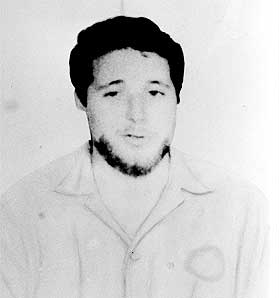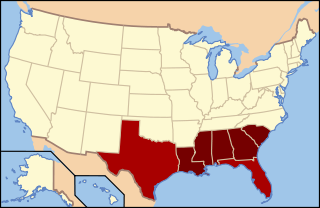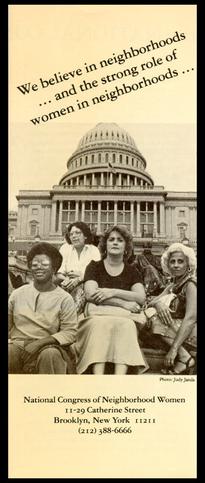Related Research Articles

The civil rights movement was a social movement and campaign from 1954 to 1968 in the United States to abolish legalized racial segregation, discrimination, and disenfranchisement in the country. The movement had its origins in the Reconstruction era during the late 19th century and had its modern roots in the 1940s, although the movement made its largest legislative gains in the 1960s after years of direct actions and grassroots protests. The social movement's major nonviolent resistance and civil disobedience campaigns eventually secured new protections in federal law for the civil rights of all Americans.

Andrew Goodman was an American civil rights activist. He was one of three Congress of Racial Equality (CORE) workers murdered in Philadelphia, Mississippi, by members of the Ku Klux Klan in 1964. Goodman and two fellow activists, James Chaney and Michael Schwerner, were volunteers for the Freedom Summer campaign that sought to register African-Americans to vote in Mississippi and to set up Freedom Schools for black Southerners.

The Student Nonviolent Coordinating Committee was the principal channel of student commitment in the United States to the civil rights movement during the 1960s. Emerging in 1960 from the student-led sit-ins at segregated lunch counters in Greensboro, North Carolina, and Nashville, Tennessee, the Committee sought to coordinate and assist direct-action challenges to the civic segregation and political exclusion of African Americans. From 1962, with the support of the Voter Education Project, SNCC committed to the registration and mobilization of black voters in the Deep South. Affiliates such as the Mississippi Freedom Democratic Party and the Lowndes County Freedom Organization in Alabama also worked to increase the pressure on federal and state government to enforce constitutional protections.

Michael Henry Schwerner was an American civil rights activist. He was one of three Congress of Racial Equality (CORE) field workers killed in rural Neshoba County, Mississippi, by members of the Ku Klux Klan. Schwerner and two co-workers, James Chaney and Andrew Goodman, were killed in response to their civil rights work, which included promoting voting registration among African Americans, most of whom had been disenfranchised in the state since 1890.

Freedom Summer, also known as the Freedom Summer Project or the Mississippi Summer Project, was a volunteer campaign in the United States launched in June 1964 to attempt to register as many African-American voters as possible in Mississippi. Blacks had been restricted from voting since the turn of the century due to barriers to voter registration and other laws. The project also set up dozens of Freedom Schools, Freedom Houses, and community centers such as libraries, in small towns throughout Mississippi to aid the local Black population.

The Deep South or the Lower South is a cultural and geographic subregion of the Southern United States. The term was first used to describe the states which were most economically dependent on plantations and slavery. After the American Civil War ended in 1865, the region suffered economic hardship and was a major site of racial tension during and after the Reconstruction era. Before 1945, the Deep South was often referred to as the "Cotton States" since cotton was the primary cash crop for economic production. The civil rights movement in the 1950s and 1960s helped usher in a new era, sometimes referred to as the New South. The Deep South is part of the highly-religious, socially conservative Bible Belt and is currently a Republican Party stronghold.

Ella Josephine Baker was an African-American civil rights and human rights activist. She was a largely behind-the-scenes organizer whose career spanned more than five decades. In New York City and the South, she worked alongside some of the most noted civil rights leaders of the 20th century, including W. E. B. Du Bois, Thurgood Marshall, A. Philip Randolph, and Martin Luther King Jr. She also mentored many emerging activists, such as Diane Nash, Stokely Carmichael, and Bob Moses, as leaders in the Student Nonviolent Coordinating Committee (SNCC).

Fannie Lou Hamer was an American voting and women's rights activist, community organizer, and a leader in the civil rights movement. She was the vice-chair of the Freedom Democratic Party, which she represented at the 1964 Democratic National Convention. Hamer also organized Mississippi's Freedom Summer along with the Student Nonviolent Coordinating Committee (SNCC). She was also a co-founder of the National Women's Political Caucus, an organization created to recruit, train, and support women of all races who wish to seek election to government office.

Dorothy Irene Height was an African-American civil rights and women's rights activist. She focused on the issues of African-American women, including unemployment, illiteracy, and voter awareness. Height is credited as the first leader in the civil rights movement to recognize inequality for women and African Americans as problems that should be considered as a whole. She was the president of the National Council of Negro Women for 40 years. Height's role in the "Big Six" civil rights movement was frequently ignored by the press due to sexism. In 1974, she was named to the National Commission for the Protection of Human Subjects of Biomedical and Behavioral Research, which published the Belmont Report, a bioethics report in response to the infamous "Tuskegee Syphilis Study.

The National Council of Negro Women, Inc. (NCNW) is a nonprofit organization founded in 1935 with the mission to advance the opportunities and the quality of life for African-American women, their families, and communities. Mary McLeod Bethune, the founder of NCNW, wanted to encourage the participation of Negro women in civic, political, economic and educational activities and institutions. The organization was considered as a clearing house for the dissemination of activities concerning women but wanted to work alongside a group that supported civil rights rather than go to actual protests. Women on the council fought more towards political and economic successes of black women to uplift them in society. NCNW fulfills this mission through research, advocacy, national and community-based services, and programs in the United States and Africa.

The March Against Fear was a major 1966 demonstration in the Civil Rights Movement in the South. Activist James Meredith launched the event on June 5, 1966, intending to make a solitary walk from Memphis, Tennessee, to Jackson, Mississippi via the Mississippi Delta, starting at Memphis's Peabody Hotel and proceeding to the Mississippi state line, then continuing through, respectively, the Mississippi cities of Hernando, Grenada, Greenwood, Indianola, Belzoni, Yazoo City, and Canton before arriving at Jackson's City Hall. The total distance marched was approximately 270 miles over a period of 21 days. The goal was to counter the continuing racism in the Mississippi Delta after passage of federal civil rights legislation in the previous two years and to encourage African Americans in the state to register to vote. He invited only individual black men to join him and did not want it to be a large media event dominated by major civil rights organizations.

The history of the state of Mississippi extends back to thousands of years of indigenous peoples. Evidence of their cultures has been found largely through archeological excavations, as well as existing remains of earthwork mounds built thousands of years ago. Native American traditions were kept through oral histories; with Europeans recording the accounts of historic peoples they encountered. Since the late 20th century, there have been increased studies of the Native American tribes and reliance on their oral histories to document their cultures. Their accounts have been correlated with evidence of natural events.
The Council of Federated Organizations (COFO) was a coalition of the major Civil Rights Movement organizations operating in Mississippi. COFO was formed in 1961 to coordinate and unite voter registration and other civil rights activities in the state and oversee the distribution of funds from the Voter Education Project. It was instrumental in forming the Mississippi Freedom Democratic Party. COFO member organizations included the National Association for the Advancement of Colored People.
Freedom Schools were temporary, alternative, and free schools for African Americans mostly in the South. They were originally part of a nationwide effort during the Civil Rights Movement to organize African Americans to achieve social, political and economic equality in the United States. The most prominent example of Freedom Schools was in Mississippi during the summer of 1964.

George Raymond Jr. was an African-American civil rights activist, a member of the Mississippi Freedom Democratic Party, a Freedom Rider, and head of the Congress of Racial Equality in Mississippi in the 1960s. Raymond influenced many of Mississippi's most known activists, such as Anne Moody, C. O. Chinn, and Annie Devine to join the movement and was influential in many of Mississippi's most notable Civil Rights activities such as a Woolworth's lunchcounter sit-in and protests in Jackson, Mississippi, Meredith Mississippi March, and Freedom Summer. Raymond fought for voting rights and equality for African Americans within society amongst other things.

National Congress of Neighborhood Women is a support group for grassroots women's organizations and community leaders involved in providing voices for poor and working-class women.
David J. Dennis is a civil rights activist whose involvement began in the early 1960s. Dennis grew up in the segregated area of Omega, Louisiana. He worked as co-director of the Council of Federated Organizations (COFO), as director of Mississippi's Congress of Racial Equality (CORE), and as one of the organizers of the Mississippi Freedom Summer of 1964. Dennis worked closely with both Bob Moses and Medgar Evers as well as with members of SNCC, the Student Nonviolent Coordinating Committee. His first involvement in the Civil Rights Movement was at a Woolworth sit-in organized by CORE and he went on to become a Freedom Rider in 1961. Since 1989, Dennis has put his activism toward the Algebra Project, a nonprofit organization run by Bob Moses that aims to improve mathematics education for minority children. Dennis also speaks publicly about his experiences in the movement through an organization called Dave Dennis Connections.
Winifred A. Green was an American activist from Mississippi during the Civil Rights Movement. She spent her life leading grassroots movements impacting youth and education, and was a white advocate for integrated education beginning in 1960s Jackson, Mississippi, a time when few white Southerners were leaders in the Civil Rights Movement.
Pauline "Polly" Spiegel Cowan (1913–1976) was an American civil rights activist who co-founded Wednesdays in Mississippi.
Clarie Collins Harvey was an African American businesswoman, religious leader and prominent activist during the civil rights movement in Mississippi. Her organization Womanpower Unlimited has been recognized by many for its role in sustaining the Freedom Riders during their imprisonment at Parchman Penitentiary. As a result of her long activist career, Harvey received many accolades, including the Outstanding Mississippian Award, given to her by Governor William Waller in 1974.
References
- 1 2 Shulman, Holly Cowan (Winter 2013–2014). "Wednesdays in Mississippi. How Jewish Was My Mother's Civil Rights Activism?". Lilith . Retrieved August 21, 2020.
- ↑ Wednesdays in Mississippi at the University of Houston
- ↑ Wednesdays in Mississippi documentary film
- ↑ Harwell, Debbie (2014). Wednesdays in Mississippi: proper ladies working for radical change, Freedom Summer 1964. Jackson, Mississippi: University Press of Mississippi. ISBN 9781628460957.
- 1 2 Harwell, Debbie (August 2010). "Wednesdays in Mississippi: Uniting Women across Regional and Racial Lines, Summer 1964". The Journal of Southern History. 76 (3): 617–654.
- ↑ Tuuri, Rebecca (Winter 2016). ""This was the most meaningful thing that I've ever done": The Personal Civil Rights Approach of Wednesdays in Mississippi". Journal of Women's History. 28 (4): 89–112. doi:10.1353/jowh.2016.0031. S2CID 151594164.
- ↑ Brandon, Elissaveta M. "Eleven historic places in America that desperately need saving". Smithsonian. Retrieved 20 October 2020.
- ↑ "The Civil Rights History Project: Survey of Collections and Repositories: Wednesdays in Mississippi papers". The American Folklife Center. Library of Congress. 2002. Retrieved August 21, 2020.